DATE
04-05 December 2020

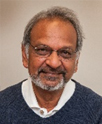
Climate change is the gravest threat facing humanity. Power engineering and its education have an important role to at least delay, if not avert, the catastrophes ahead. ...However, as reported by ASEE, in the EE part of ECE, student enrollments are declining nationwide just when we need them the most.
Most young people are now very much aware of climate change and its consequences, and thus it is a great opportunity to create a pipeline of young students to recruit them into power engineering to pursue their undergraduate and graduate studies. This would require a holistic view where we integrate power systems that is needed for the delivery of power, power electronics that is ubiquitous and is used in all aspect of energy generation, transmission and end-use, and electric machines that are the primary users of electricity specially if we are to transfer as much of energy use to electricity and generate that by renewables.
This presentation will present one view of doing such integration mentioned above and how can it be done in a collaborative manner using the educational technologies on hand.
Dr. Ned Mohan: Ned Mohan (LF-IEEE) joined the University of Minnesota in 1975, where he is Oscar A. Schott Professor of Power Electronic Systems and Morse-Alumni Distinguished Professor. He received his Bachelor’s degree from the Indian Institute of Technology-Kharagpur... in 1967. His PhD in Electrical Engineering and Master’s in Nuclear Engineering are from UW-Madison. He has written six textbooks; all together, they have been translated into nine languages. He has graduated 47 PhDs. His area of research is in power electronics applied to power systems and he holds several patents.
Ned Mohan received the H.T. Morse Distinguished Teaching Award for undergraduate education from the University of Minnesota in 2007. He has received 2008 IEEE-PES Outstanding Educator Award, 2010 IEEE Undergraduate Teaching Award, 2010 UWIG Achievement Award from Utility Wind Integration Group, 2011 Distinguished Alumnus Award from IIT-Kharagpur (India), and 2012 IEEE Power & Energy Society Ramakumar Family Renewable Energy Excellence Award. In 2013, he received the Innovative Program Award from the ECE Department Heads Association made up of over 250 U.S. universities. In 2014, he received the Distinguished Graduate Teaching Award from the University of Minnesota and the IEEE Nari Hingorani FACTS Award from the IEEE Power & Energy Society.
He is a Fellow of the IEEE, a Regents Professor and a member of the National Academy of Engineering.
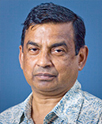
The talk will give an overview of recent developments of the interior permanent-magnet synchronous machine with high field weakening range, which are required for electric vehicles. It will then describe the control challenges in... the face of significant inductance and flux linkage parameter variations which affect its performance. Lastly, a method of estimation of the machine inductance parameters using current derivatives, which is fast enough for updating inductance in each sampling interval will be described. The method can easily be used for sensorless control and for determination of long term health of the windings and the rotor magnets.
Prof. Faz has received his B.Sc. in Electrical Engineering from Bangladesh University of Engineering and Technology in 1972; M.Sc and PhD from University of Manchester Institute of Science and Technology, UK, in 1975 and 1978 respectively. ... He is Life Fellow, IEEE, Member, IEEE Fellow Evaluation Committee for 2018, Members of IEEE Electrical Machines and Industrial Drives Committees, Member of IEEE P1812 Working Group for Testing Standard for Permanent magnet Machines. He is IEEE Fellow, since January 2014, “in recognition to Direct Torque Control of Interior Permanent Magnet Machines”, IEEE Third Millennium award in 2000 “in recognition and appreciation of valued services and outstanding contributions to the profession”, Commonwealth Postgraduate Scholarship (1974 – 1977) for higher education in the U.K. He has received Seven best paper awards. He is the author of 4 books and 18 book chapters in books published internationally, 112 journal papers and 380 conference papers, 16 keynotes/invited seminars.
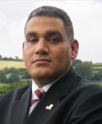
Electrical Energy Storage has played three primary roles. First, it reduces the cost of electricity costs by storing electricity during off-peak times for use at peak times. Secondly, ...it improves the reliability of the power supply by supporting the users during power interruptions. Thirdly, it improves power quality, frequency and voltage. Electrical Energy storage is expected to solve many problems, including excessive power fluctuation and undependable power supply due to the use of high penetration levels of renewable energy. Electric vehicles with batteries are the most promising technology to replace fossil fuels by electricity from mostly renewable energy sources. This presentation will highlight the technology overview, market needs, challenges and future roles electrical energy storage.
Dr. Ahmed Faheem Zobaa received his BSc (Hons), MSc, and PhD degrees in Electrical Power & Machines from Cairo University, Egypt, in 1992, 1997, and 2002, respectively. He received his Postgraduate Certificate in Academic Practice from the University of Exeter, the UK in 2010, ...and his Doctoral of Science from Brunel University London, the UK in 2017. He has spent 28 years in the academia at Cairo University (Egypt), University of Exeter (UK) and Brunel University London (UK). Currently, he is a Reader in electrical and power engineering, an MSc Course Director and a Full Member of the Institute of Energy Futures at Brunel University London, UK. His main areas of expertise include power quality (marine) renewable energy, smart grids, energy efficiency, and lighting applications.
Dr Zobaa is an Executive Editor for the International Journal of Renewable Energy Technology, an Executive Editor-in-Chief for Technology and Economics of Smart Grids and Sustainable Energy, and an Editor-in-Chief for the International Journal of Electrical Engineering Education. He is a registered Chartered Engineer, Chartered Energy Engineer, European Engineer, and International Professional Engineer. He is also a registered member of the Engineering Council, UK; the Egypt Syndicate of Engineers; and the Egyptian Society of Engineers. He is a Senior Fellow of Higher Education Academy, UK; Fellow of the Institution of Engineering and Technology, Energy Institute, UK, Chartered Institution of Building Services Engineers, UK, Institution of Mechanical Engineers, UK, The Royal Society of Arts, UK, The African Academy of Sciences, and Chartered Institute of Educational Assessors, UK. He is a senior member of the IEEE.
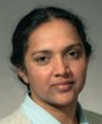
The increasing spread of renewable energy resources, both in their types and numbers, along with the ever-growing demand in electricity has brought about many technical and operational challenges to power grids. This presentation is focused on the integrity of the electrical insulation systems. ...In the past, transients due to lightning, and switching operations with load changes or fault occurrences were the main causes of overvoltages. However, in today’s grid, due to the increased use of power electronics devices and frequent operation of circuit breakers, the insulation is subjected to distorted voltages comprising of high frequency transients which may further be magnified by one or more system resonances. Hence, in areas heavily loaded with renewable energy sources the failure rate experienced by certain components like transformers is constantly increased. As such, the impact of new technologies on the electrical insulation systems needs to be understood to ensure the reliable operation of the power system components.
Shesha H. Jayaram is a Professor, and the Director of the High Voltage Engineering Laboratory, at the University of Waterloo, Canada. Prof. Jayaram’s research interests are developing diagnostics to analyze insulating materials ... , industrial applications of high voltage engineering, and applied electrostatics. Prof. Jayaram is an active member of the IEEE Dielectric and Electrical Insulation Society and the Electrostatic Processes Committee of the IEEE Industry Applications Society. She is a registered professional engineer in the province of Ontario, Canada, and a Fellow IEEE.
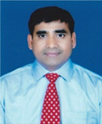
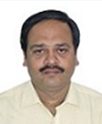
Dr.Sukumar Mishra received his M.Tech and Phd in Electrical Engineering from National Institute of Technology, Rourkela in 1992 and 2000 respectively. Presently, Dr. Mishra is a Professor at Indian Institute of Technology Delhi and has been its part for the past 17years. Prof. Mishra has won many accolades throughout his academic tenure of 27years.... He has been a recipient of Young Scientist award (1999)by Orissa Bigyan Academy,INSA medal for young scientist (2002),INAE young engineer award (2002),INAE silver jubilee young engineer award (2012), The Samanta Chandra Shekhar award (2016),Bimal Bose award (2019)and NASI-ReliancePlatinum Jubilee award (2019). He has been selected as Mission Innovation National Champion (2019)under the Mission innovation initiative to accelerate Clean energy in India. Prof. Mishra’s research expertise lies in the field of Power Systems, Power Quality Studies, Renewable Energy and Smart Grid. Also, he has been functioning as Associate Dean R & D of IIT Delhi from March, 2020. Prof. Mishra has so far authored more than 70 IEEE Transactions/Journals, 30 IET Journals and 30other international journal papers. Hehas supervised 31Phd students (18ongoing), 38Masters students(2Ongoing). Prof. Mishra has also authored 5 book chapters so far and has 13patents to his credit.
04-05 December 2020
IIT Bhubaneswar, Argul
